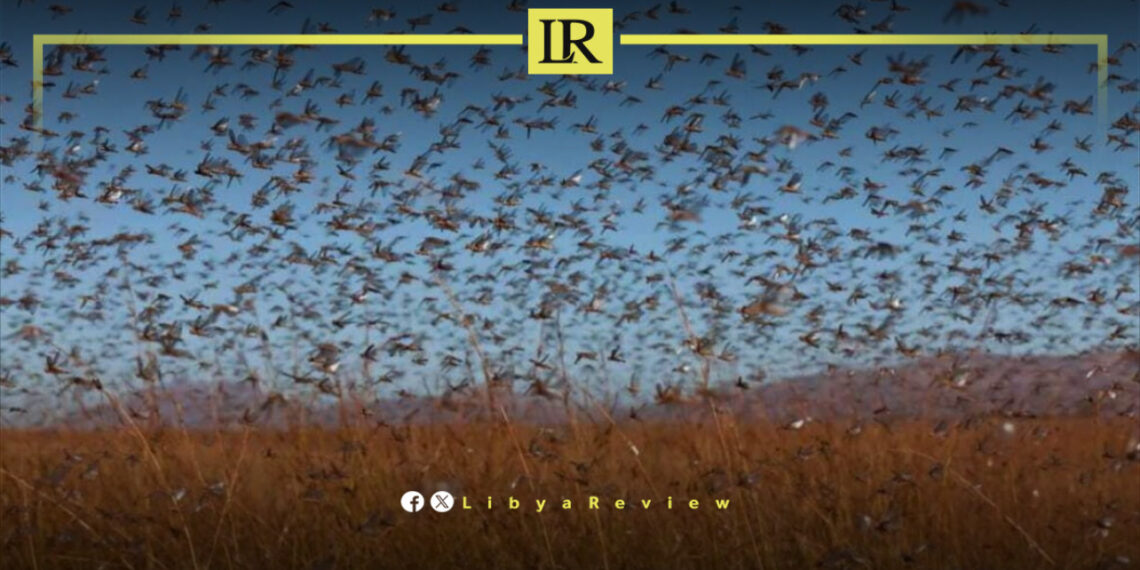Libya is facing a severe agricultural crisis as African locust swarms sweep across key regions in the south, leaving widespread destruction in their path.
Local authorities reported that the swarms have already devastated more than two million palm trees, with affected areas including Tazirbu, Sabha, Tarhuna, Bani Walid, and Wadi Taraghin. This outbreak threatens to worsen the country’s food security, which is already under pressure due to economic instability and limited resources for pest control.
According to Salah Musa Mubarak, head of the National Committee for Combating Desert Locusts, anti-locust teams are working tirelessly to limit the damage, but lack of pesticides, spraying equipment, and vehicles is making it difficult to mount an effective response.
Mubarak has appealed to both the eastern and western governments of Libya to intervene immediately and provide the necessary resources to contain the outbreak before it spreads further.
The spread of the locusts is linked to recent rainfall in southern Libya, which created favorable conditions for locust reproduction. Mubarak warned that without swift action, the infestation could escalate beyond control, further endangering Libya’s fragile agricultural sector. The committee has shared photos and videos on social media showing the extent of the damage, especially in the remote municipality of Tazirbu, where crops have been severely impacted.
The locust outbreak has compounded Libya’s existing economic challenges, further straining an already fragile food system. Agriculture plays a crucial role in the livelihoods of many communities, with palm trees and date production serving as a major source of food, income, and employment. The loss of over two million trees not only affects farmers directly but is also expected to lead to higher food prices, placing additional pressure on consumers across the country.
Desert locusts are known for their rapid spread and high mobility, making containment efforts urgent. Even a small swarm can consume vast quantities of crops, posing a direct threat to food security. With the current outbreak spanning large areas, experts fear that without proper intervention, the locusts could migrate to other regions or neighboring countries, intensifying the crisis.


